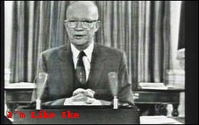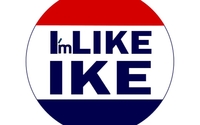Commentary
The 'Madison Avenue-Wall Street Industrial Complex'
- by Joe Mandese @mp_joemandese, December 12, 2013

For the record, you can say you heard the term here first. I can find no reference of it being used before, and Google has no query results for that exact term. What does it mean? Like the “military-industrial complex” I’m drawing from, it’s the idea that there now exists an incestuous and self-perpetuating monetary and policy relationship between the advertising and financial industries that are simultaneously influencing each other. It’s part of the underlying thesis behind RTM Daily and how we cover the rapidly evolving programmatic marketplace, especially exchanges and trading that emulate, if not exactly mimic, Wall Street’s.
But there are some obvious similarities, and from what I have been able to see in my inbox the past several days, quite a bit of overlap. It’s the last part that inspired this post. But before I get to that, let me remind you about some elements of the thesis.
1 - Madison Avenue “media buyers” are restructuring as “media audience traders,” and planners and strategists are effectively becoming “portfolio managers.”
2 - Madison Avenue’s programmatic exchanges are the equivalent of Wall Street’s high-speed trading systems.
3 - Media inventories are becoming analogous to Wall Street’s “equities” and “commodities.”
4 - Advertisers are becoming “institutional investors.”
5 - (Some) agency trading desks are becoming like “hedge funds.”
I could go on, but if you’ve been following my and Tyler Loechner’s posts these past few months, you get the drift.
I’m not going to say the analogy completely holds water, but I will say that not a day goes by that I don’t think it’s more true, not less. So let me give you some “real-time” examples of the “complex,” as I learned about them, from just the last few days.
Dec. 10, 4:15 pm: Received a pitch from a PR person touting that Wall Street hedge funds will be the “next great” ad category on Madison Avenue. The pitch was based on a report in Fortune magazine that Topturn Capital became the first hedge fund to advertise to the general public since the Securities and Exchange Commission lifted its 80-year-old ban on “general solicitation” on Sept. 23rd. “Still in at a nascient stage, hedge fund advertising has the potential to become a significant source of revenue for advertising and marketing firms,” she gushed, with many on Madison Avenue hoping it goes straight from her press release to God’s ears.
Dec. 11, 11:01 am: Forbes breaks a story that Madison Avenue’s primary data processing system, Mediaocean, plans to begin trading on Wall Street’s public markets in 2014. (This one is ironic for a number of reasons, but especially since Mediaocean has sometimes fancied itself as a Wall Street-like exchange, though it in reality, it is just a big data cruncher and facilitator.
Dec. 11, 7:57 pm: Received an equity research report from Doug Anmuth at JPMorgan analyzing the significance of Facebook being added to the S&P 500 and S&P 100 stock indexes. (S&P made the announcement after the stock market closed that Facebook will replace The Williams Cos. on its 100 index and Terradyne on its 500 index.)
Sound complex? Not really. Both industries trade stuff. Wall Street trades money, or financial instruments worth money. Madison Avenue trades something brands hope can be converted into money: people’s attention. The fact that they’re starting to look more like each other makes eminent sense. Or maybe, that’s just my complex.

President Dwight D. Eisenhower made the concept of an "industrial complex" famous in his farewell television speech.




Nice wordsmithing, Joe.
History will doubtless record we are in the earliest stages of a massive transformation of this opaque, inefficient, and illiquid 12 digit global market that will benefit from financial and commodity trading best practices.
As a media trader committed to reinventing media buying and selling by providing explicit benefits to both buyers and sellers, MediaCrossing looks forward to the day when those selling the picks and shovels mining these new opportunities share more of the benefits with those they are intended to help.
All true - except Wall Street offers much greater transparency than Madison Avenue. Scary really...
Great piece! I think it's all changing so fast that if you're not on the inside watching it happen -- or don't have a bunch of people on the inside sending you press releases and making phone calls about it -- it's all going to happen before most people even realized it's happened. MP has done a great job trying to keep the industry up to speed, but it's really happening faster than I can keep up or even fully understand. Intimidating.
Your last paragraph hit it on the head, there is a move toward finance in media, but it’s a natural progression as opposed to an intentional one.
With important caveats, media instruments are actually a lot like financial instruments; this is why RTB trading is even possible. In fact, RTB is really just a form of “Dark Pool” which have existed for years in finance. As dark pools represent only ~15% of the market in finance, it seems logical that media would benefit from the wide array of other trading venues available to mature markets; in this light media SHOULD move toward finance.
As for the “incestuous relationship” you speak of, I’m skeptical. There have been countless publicly traded media and technology companies around for decades, and financial companies have been advertising to consumers for at least as long. Further, Facebook handily meets the S&P 500 inclusion criteria, and it’s not nearly the first, nor the biggest new economy company to be included in the index.
In the interest of allaying any conspiratorial angst, I think what you attribute to the “Madison Avenue-Wall Street Industrial Complex” is probably more appropriately attributed to natural evolution of the media business. That said, this “complex” might yet come to be, and if/when it does, you will still be the first to have coined the phrase, if not on the leading edge of the evolution. Thanks for the article.